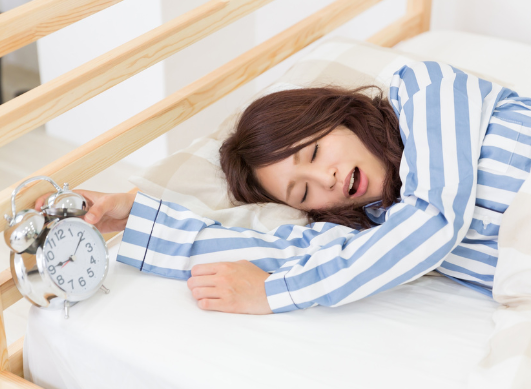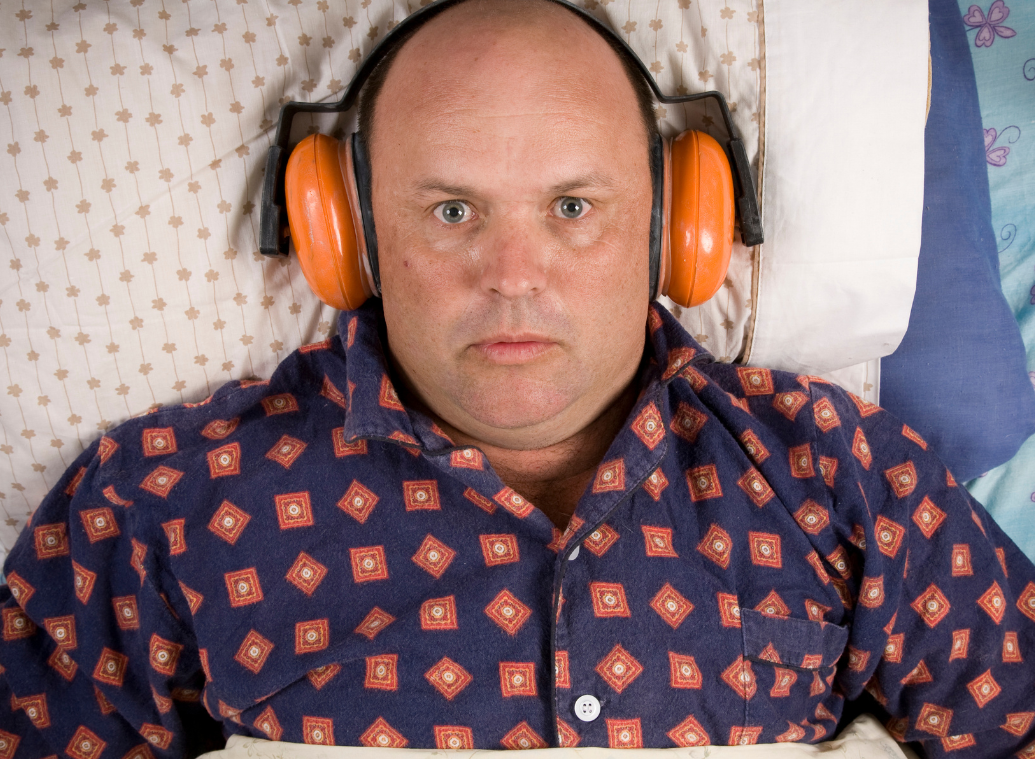- Home
- Forums
- General forums
- Good to know
- 60% of chronic patients feel alone: 5 solutions to help patients and their families
60% of chronic patients feel alone: 5 solutions to help patients and their families
- 34 views
- 0 support
- 5 comments
All comments

Lee__R
Community managerGood advisor
![]()
Lee__R
Community manager
Last activity on 04/03/2020 at 5:04 PM
Joined in 2018
1,336 comments posted | 120 in the Good to know group
2 of their responses were helpful to members
Rewards
-
Good Advisor
-
Contributor
-
Messenger
-
Explorer
-
Friend
-
Top chef
Hello members. I hope you do not mind me tagging you ... I think you may find this recent survey and article from our team interesting. Share your opinions and discussing together... do you feel isolated? What solutions have you implemented? and more...
@rcaitlyn23 @rVega68 @rcifone03 @Tcasanova @Tcburns1169 @Tcorn2 @Tcpodz @Yvonne @Yvonnek @ezemaebere @txcowgirl27 @Txreptiles @txtnwnorep @UCsince1996 @Icantbelieveit2018 @ICantStopEating @Ize019 @Izikkzkzz @izzojosh25 @LynndMS @Izzy.g222 @IzzyBee @ericoltk @erikasb @mickey @Jen0927 @Mobeck @Kabiosile @kaelyn @Kafuller @KAEMICHELLE20 @Pcqtpie14 @pmkaess @Prdmommyof2 @ndailey @ndgrrl @Chris_ @IpsenGMA
![]()
Lovaann
![]()
Lovaann
Last activity on 07/17/2025 at 12:22 AM
Joined in 2018
2 comments posted | 1 in the Good to know group
Rewards
-
Explorer
This is Lovaann, I definitely feel isolated, my husband passed away on Dec. 22, 2018. It is so hard now as I don't know what my future holds for me. Yes I do feel like I have no one anymore, I am very isolated!!
![]()
mickey
Good advisor
![]()
mickey
Last activity on 10/22/2025 at 3:44 AM
Joined in 2018
133 comments posted | 42 in the Good to know group
15 of their responses were helpful to members
Rewards
-
Good Advisor
-
Contributor
-
Messenger
-
Committed
-
Explorer
-
Friend
Hello Lovaann,
I Can Relate A Little. My Mother Had Passed Away And I Feel,All Alone. The One Reason I Feel So All Alone Is: She Had Done Everything To Help Me Fight The Lupus & Ms. I Have A Caregiver, He Is Very Much, Like Me With Our Culture Being Italian Decent!! (Italian American) I Am Originally From New Jersey.
We Have, Our Culture, Determines Our Morals, And Characteristics In Our Personality. His Family Was Born In America And My Father Was Born In Italy. That Did Not Make Much Of A Difference. I Am Blessed To Have Him. I Wish You Could Meet More People Like Him.
California, Is A Cold Place As Far As People. The People Are Not Close At All. My Neighbor, Is A Young Man In A Wheelchair. He Is Far From Being Italian And His Morals Are Very Different Than Mine. I Like This Young Man, But He Is Not Italian!!
I Only Wish, He Was Like The People I Grew Up With!! People, In New Jersey, Are Divided By What Their Nationality. The Italians Were Up The Hill And The Irish Were Down!! Lol That Is Just The Way It Was. I Miss That Culture. California Is Spread Out. I Want To Get To The Point. I Am Like A Fish Out Of Water. I Do Not Belong Here And I Have No Choice. Now, I Am Stuck Here Because Of My Low Income, And My Health. I Could Not Take That Cold Weather Anymore!! If I Never Left New Jersey, Than I Would Not Notice It.
Now, I Am Adjusted To This Weather And Forget About Adjusting To Snow And 18 Degree Weather.
I Want To Tell You, Some Background Of Mine. The Fact Remains If I Was Healthy I Would Have Left A Long Time Ago. I Am Stuck In A Place I Do Not Like!!! The Weather Is Great But, My Italian Culture Is Almost Gone!! I Do Want You; To Understand, If I Was In New Jersey, Things Would Of Been Different!! Regardless, Of My Situation..They Helped Each Other And Did It Unconditionally!! Especially Since I Grew Up Their All My Life And So Did My Family.
Yes, I Lost My Mother And I Have A Son. My Son, Is Finding Out What Life Is All About!!!! He Is In Another State, Living His Life. So, Here I Am Alone. I Am A People Person And This Is Killing Me (Just To Say).. That Is My Reaction To A Culture, That Is Totally Out On Left Field.
Remember, I Did Loose My Mother And My Son, Well That Speaks For Itself. So, I Am Alone In Many Ways. I Hate The Weekends Because My Caregiver Is Gone. (He Is, Italian American) I Just Wanted To Tell You "You Are Not Alone" In More Ways Than One!!! Try To Keep Your Faith And Hang In Their.. God Has Something In Store For You.
Always Mickey (Mickeyitaly3@Aol.Com) I Wanted To Get My Post To You!! Please I Understand, I Am In Pain Today And This Is The Best I Could Write!!!
![]()
Yvonne
![]()
Yvonne
Last activity on 08/26/2019 at 9:05 AM
Joined in 2018
4 comments posted | 1 in the Good to know group
Rewards
-
Explorer
Hi Mickey, I also am from N.J. Bergen County. I’m not Italian but seemed to date only Italians growing up. Lived in Hackensack a s South Hackensack was where all the Italians. I learned all about their foods ( incredible), their cultures etc. wonderful times. When I met my husband I honestly thought he was Italian, fell in love, married him. Turned out he was Black Irish, without prejudice..
I live here in CA and extremely lonely also. This is not the place to make friends. Sure I have neighbors and a son who lives in the same home as me ,but, he has a life and I feel like a burden to him.. it,s terribly hard and I so much feel the same as you,however, the only thing I can say is to join more blogs and try and invite as many people as you can. It’s amazing when you hear the difficulties others are having , many times yours will feel less than others. Again, i’m not Italian but wish I had the comroderie the Italian families had. Yvonne
![]()
mickey
Good advisor
![]()
mickey
Last activity on 10/22/2025 at 3:44 AM
Joined in 2018
133 comments posted | 42 in the Good to know group
15 of their responses were helpful to members
Rewards
-
Good Advisor
-
Contributor
-
Messenger
-
Committed
-
Explorer
-
Friend
Dearest Yvonne,
You Are Not Alone!! I Am Italian American And My Mother, Said To Me "Thank God Your Father Is Dead"!! I Married A Man That Was Black And His Family Were Irish And Black!! So, I Can Relate.
I Only Wish You Would Contact Me By Phone.
I Can Not Sit At The Computer, Like I Use Too
Articles to discover...
Subscribe
You wish to be notified of new comments
You have been subscribed








Lee__R
Community managerGood advisor
Lee__R
Community manager
Last activity on 04/03/2020 at 5:04 PM
Joined in 2018
1,336 comments posted | 120 in the Good to know group
2 of their responses were helpful to members
Rewards
Good Advisor
Contributor
Messenger
Explorer
Friend
Top chef
60% of patients feel alone in the face of illness and misunderstanding
60% of patients responded in our survey that they felt "very much" or "very much" alone. Having a chronic disease puts a heavy burden on patients' daily lives. It is difficult to explain how you feel to people who do not share your suffering, especially since treatments can be restrictive, preventing you from going out to dinner or taking a family walk, for example.
Indeed, many members told us about the intense fatigue that undermines their energy and thus their sociability, as well as the pain that paralyzes them: 54% of patients feel that they would feel less alone if they were less tired, and 53% would feel less alone if their illness was less painful. The symptoms of their illness can thus physically prevent them from leaving home and, in fact, isolate them. Also, for some members they feared going out in case, "I have a flare-up and can't handle it" thus increasing their isolation.
>> Join our forum dedicated to pain treatment
Beyond these disabilities, patients especially lament the lack of understanding they experience, especially when the disease is not externally visible. Outsiders do not understand the severity of their illness: "This disease is "invisible" and you find yourself alone dealing with the pain, the people around you just have the impression that you are constantly complaining and adding to it". Many patients do not or no longer dare to discuss the subject with their loved ones, for fear of being even more isolated: "My family and friends do not know the severity of the disease. I try not to bother my family with this," said one patient. Explaining your condition to those around you is a daily challenge that, after a while, can lead patients to isolate themselves.
45% of patients even hid their illness from those around them so as not to worry them, so as not to be pitied, to get a job or custody of the children, but also, as one patient summarised it, because "in the face of ignorance, misunderstanding, shortcuts, I am exhausted".
Patients' relatives, more isolated than the patients themselves: 60% of patients and 63.2% of relatives feel alone
While 60% of patients feel alone, no less than 63.2% of the relatives surveyed feel "very much" alone.
>> Being the carer of someone with Alzheimer's - read the testimonial
In the United Kingdom, the gap between patients and their relatives is even greater: 68% of patients feel alone compared to 80% of relatives! Are patients' emotions taken into account by health professionals more than those of their caregivers? They must also keep a calm and controlled environment to disturb the patient they help: "I feel close to my wife, together we remain united, but when faced with the extent of the illness that deprives her of her mobility, I feel alone because I have to manage everything, without disturbing the morale of my wife who needs calm and tranquility," explains one member.
Family members often set aside their activities to care for the patient. They see less of their friends and are sometimes misunderstood, even though for 80% of caregivers, it has never been a question of hiding their loved one's illness. Perhaps the worst rejection remains that of the patient being helped himself: "their affection for me has decreased significantly because of her struggle with her illness," said one respondent.
The daily lives of patients and their caregivers are disrupted by the disease
Only 14% of patients and 20% of relatives did not reduce the frequency of their sports sessions, outings to the city or restaurants. A large majority of our members have seen their daily lives directly affected by the disease: 67% of patients have reduced the frequency of their physical activities, 59% have slowed the frequency of eating out and 57% have slowed down their social outings. For their relatives, 53% go to restaurants less often and 52% have limited the number of trips they make. Some diseases can lead to the adoption of a particular diet, fatigue and treatment that is too restrictive to continue outdoor activities. Slowing the frequency of these activities is not insignificant: it helps to isolate patients and their caregivers, leaving them with little breathing space away from the disease.
Almost all patients and relatives surveyed saw an impact of the disease on their daily lives: 98% of patients consider that their social life has been disrupted by the disease and 96% of relatives have seen an impact on their family life. Even the professional lives of the participants in our survey were disrupted for 81% of patients and 77% of relatives. It is difficult for patients and their loved ones to ignore a disease that prevails in all aspects of daily life. One member said, "I struggle to leave the house, it is very frustrating dealing with a lack of mobility".
Family, a bulwark against the loneliness of patients and their loved ones
While the feeling of loneliness is shared by many, our members have put in place solutions to protect themselves from it. Despite the difficulties in explaining the disease, 40% of patients still see their family as a way to help them feel less alone but they do feel the pressure to "be strong for my family". For 31% of them, friends are also a major help - and even virtual friends since 31% believe that Carenity allows them to fight loneliness. A close environment for patients is therefore essential in making them feel supported and understood. Moreover, for 38% of respondents, including more relatives in the care pathway would be a solution to feel less alone. One member from the US said, "I only have my husband...it's lonely for me".
On the caregiver side, it is Carenity that makes you feel less alone (31%). Next come family (29%) and friends (28%). Forums (26%) and patient associations (20%) are also popular solutions for caregivers looking to learn more about their loved one's condition and improve their daily lives.
The ambiguous role of physicians and health professionals
The relationship between patients and their doctors is not always a harmonous one. 27% of patients feel close to their doctor and consider that they makes them feel less alone. 39% of all our respondents consider health professionals to be attentive to their difficulties: trust in doctors is even the majority in Spain, where 52% of patients and relatives consider their health professional to be attentive.
In contrast, in the United Kingdom, this encouraging score falls to 28%. Faced with the doctor's lack of time during consultations and his potential lack of empathy, many patients and their caregivers do not dare to discuss the subject of their loneliness. "The medical system doesn't take me seriously," complained one patient;"there are few medical responses to pain," says another;"no health professional has taken the time to listen to me," adds another member.
>> 70% of patients lie to their doctor - find out why!
For 37% of Carenity members, getting longer and more regular medical appointments would be a good way to feel less alone. In the United Kingdom, a majority of members (56%) believe that this would be necessary. Without questioning the essential role of the doctor, our members seem to advocate for a more peaceful and humane relationship of trust.
In short: 5 solutions to be better understood and supported
In the face of isolation, our members, whether close or patient, gave us their ideas to improve their daily lives. Here are the five solutions they classified:
1: Make the general public aware of the various chronic diseases: this would help to avoid ignorance and clumsiness on the part of outsiders (51%)
2: Benefit from psychological support in order to express emotions as a patient or family member (39%)
3: Include family members in the care pathway to share the burden of chronic disease and support patients and caregivers (38%)
4: Have longer and more regular appointments so that the doctor is a real support in the face of the disease (37%)
5: Have more information on discussion groups and associations: 72% of patients and their relatives did not have access to them (36%)
On our side, we are proud that Carenity helps 66% of you feel less alone! We will continue our efforts to help you find support and useful information.
And do you feel isolated?
What solutions have you implemented?